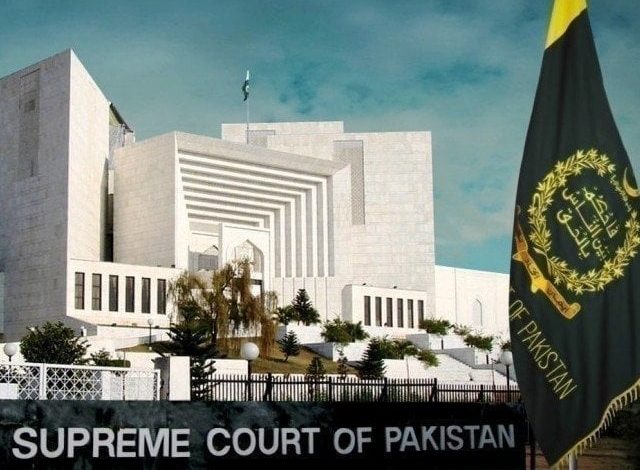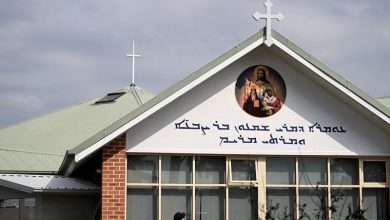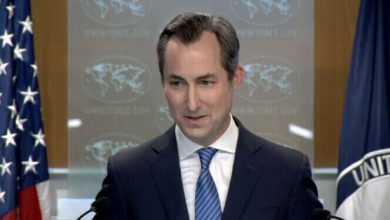NYT barred editors from using ‘genocide’, ‘Palestine’ in Gaza articles: report

Influential American newspaper, The New York Times, had instructed journalists to refrain from using words such as “genocide”, “Palestine”, “massacre”, “occupied territories”, and “refugees” in their articles on Israel’s invasion of Gaza, The Intercept reported, citing a leaked internal memo.
The Intercept, an American investigative news organisation, has brought to light a leak, revealing secret editorial directives from The New York Times. These guidelines dictated how their journalists should cover Israel’s invasion of Gaza. The revelation has ignited a debate about media bias and the pivotal role journalism plays in shaping public perception.
According to The Intercept’s report, the memo, authored by Times standards editor Susan Wessling, international editor Philip Pan, and their deputies, was initially circulated in November 2023. It has since been periodically updated amidst the ongoing invasion of Gaza by Israel, which commenced last October.
The guidance advised against employing terms such as “Palestine”, “genocide”, “ethnic cleansing”, “occupied territory”, and “refugee camps”, despite the United Nations recognising as many as eight refugee camps within besieged Gaza.
Notably, the Israeli government has consistently opposed the historical reality that Palestinians maintain refugee status, a designation that highlights their displacement from lands to which they claim a right of return.
“Can we articulate why we are applying those words to one particular situation and not another? As always, we should focus on clarity and precision — describe what happened rather than using a label,” the memo noted.
The memo also directed reporters to avoid using “fighters” when referring to specific attacks, instead suggesting the term “terrorist”. However, The Intercept’s analysis noted inconsistency in the application of this term, highlighting The New York Times’ bias in favour of Israel’s perspective on the war.
Read also: Meta suspends Palestinian journalist Motaz Azaiza’s Facebook account
As per the leaked memo, the term “Palestine” is discouraged in regular usage, except for specific circumstances like historical references or significant political events recognised by international bodies.
In January, The Intercept published an analysis examining the coverage of the conflict from October 7 to November 24 by The New York Times, Washington Post, and Los Angeles Times. The analysis covered the initial weeks of the war, preceding the implementation of The New York Times’ new editorial guidelines.
The Intercept discovered a significant disparity in language usage: terms such as “slaughter”, “massacre”, and “horrific” were primarily employed to describe incidents involving Israeli casualties caused by Palestinian fighters, while they were rarely used when reporting on Palestinian casualties resulting from indiscriminate Israeli airstrikes.
The study pointed out that until November 24, The New York Times had described Israeli fatalities as a “massacre” on 53 occasions, compared to only once for Palestinian deaths. The discrepancy was also notable with the term “slaughter”, which appeared 22 times more frequently in descriptions of Israeli deaths than Palestinian deaths. This occurred despite the increasing number of Palestinian casualties, which by then included approximately 15,000 civilians.
Read: Google terminates 28 employees for protest of Israeli cloud contract
According to the leaked memo, it is deemed appropriate to use “terrorism” and “terrorist” to describe the attacks of October 7, which involved the deliberate targeting of civilians in killings and kidnappings.
The NYT refrained from categorising Israel’s repeated strikes on Palestinian civilians and protected civilian sites, such as hospitals, as “terrorism” even in cases where civilians are directly targeted.
The memo further advised: “When possible, avoid the term and be specific (e.g. Gaza, the West Bank, etc.) as each has a slightly different status.”
A source from NYT, cited by The Intercept, suggested that avoiding the term “occupied territories” tends to obscure the true nature of the conflict, aligning with the Israeli official narrative.
“You are basically taking the occupation out of the coverage, which is the actual core of the conflict,” the source explained to The Intercept. “It’s like, ‘Oh let’s not say occupation because it might make it look like we’re justifying a terrorist attack.'”





